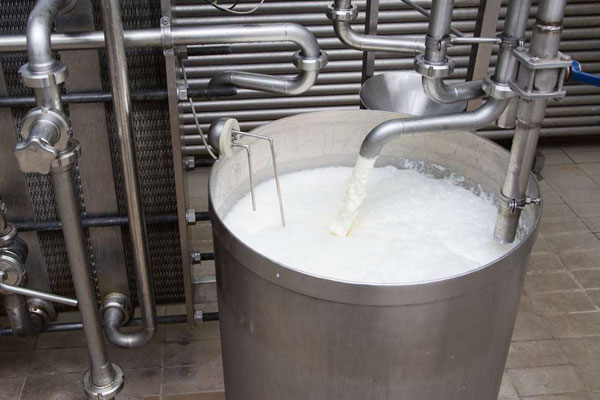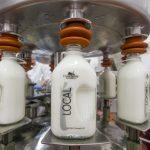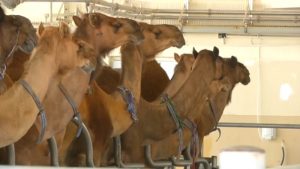
The escalating trade dispute between Kenya and Uganda over milk exports, is just one of many facing all EAC partner states and underlines critical gaps in the regional integration project that could potentially harm the economies.
Dr Gideon Badagawa, the executive director of the Uganda Private Sector Foundation warns that unless resolved early, these trade tiffs could affect the region’s investment profile.
At a glance, Uganda’s trade with Rwanda is down to a trickle after a year-long of frosty relations; Tanzania has locked out Ugandan timber, sugar and maize; while Kenya, which has been open to imports of maize and beans from Uganda has been reluctant to open its market to manufactured products from Uganda and now even milk.
The South Sudan market, while open, still suffers from effects of conflict and insecurity.
Non-tariff barriers have intensified as member countries become competitors amid regional protocols that eliminate taxes on goods originating from within the economic bloc as conceived under the EAC Treaty.
“This is going to hurt the region at some point. Put yourself in the shoes of an investor who set up in the region because he heard the presidents and other bureaucrats say East Africa was a single market and investment destination, but then later finds that for unofficial reasons, he cannot access half of that market,’’ said Dr Badagawa.
When they remain unaddressed conclusively, these disputes will deny citizens goods and services at affordable prices, which was the rationale behind integration in the first place.
PROTEST NOTE
The milk war between Kenya and Uganda has now taken a turn for the worse when the gloves came off this past week.
Frustrated Ugandan officials on Thursday issued a rare diplomatic rebuke to Kenya, over the continued blockage of milk exports by Uganda-based Pearl Dairies to Kenya. The obstruction in Kenya of delivery trucks carrying Pearl Dairies products has so far cost the company $0.6 million, according to the firm’s internal documents. Another 32 trucks laden with milk are stranded at different points between the Pearl Dairies processing plant in Mbarara and the common border at Busia.
The protest note, delivered to Kenya’s High Commission to Uganda on January 15, followed a tense stakeholders meeting on January 14 in Kampala during which the Pearl Dairies issue was discussed and various options explored.
RULES OF ORIGIN
The meeting was attended by Trade and Industry Minister Amelia Kyambadde and Lt-Col (rtd) Bright Rwamirama, the Minister for Livestock Development, and also attended by representatives from several key ministries and government departments.
Sources have told The EastAfrican that the “protest note,” was adopted as a compromise position between extremes such as retaliatory measures by Uganda and referring the matter to presidents Yoweri Museveni and Uhuru Kenyatta. This came after the observation that while exports by Pearl Dairies were being obstructed, those of its rival Brookside Dairies, in which the Kenyatta family has an interest and which President Museveni is a big supplier of raw milk, continue to enter Kenya unimpeded.
The meeting followed an escalation of incidents in which Pearl Diaries warehouses and those of its distributors in Kenya were raided and stock confiscated by Kenya’s Directorate of Criminal Investigations officials without any court orders.
Between January 1 and 12, the DCI has confiscated 54 tonnes of powdered milk and 140,000 litres of Long Life milk from Pearl Dairies and its distributors, citing nonconformity to standards and smuggling.
A review by Uganda’s Trade ministry of documentation relating to the impugned consignments, however, revealed that they had been issued certificates of conformity by among others, the Kenyan Ministry of Agriculture, Kenya Dairy Board, Kenya Bureau of Standards and Kenya Revenue Authority.
According to sources at the meeting, Ms Kyambadde told the meeting that non-tariff barriers were a problem that was mutual to Uganda and Kenya.
CURRENCY DIFFERENTIAL
For instance, in the latest standoff over milk, Kenya disputes Uganda’s capacity to produce sugar and milk surpluses, charging that Kampala had become a centre for repackaging cheap imported sugar from Brazil.
In the Pearl Dairies case, Kenyan politicians have claimed that the company which has capacity to process 500,000 litres a day, has been reconstituting cheap imported milk powder from Austria, thereby violating the EAC Rules of Origin.
Under the rules of origin, if Pearl Dairies produced milk from imported powder, then its milk should attract duty in Kenya. Currently, it does not because it was believed all their milk was made from raw materials wholly sourced from Ugandan farms.
Last December, Kenya dispatched a 20-man verification team to Uganda which visited Pearl Dairies and three other processors in western Uganda. To date, the team is yet to produce a report of its findings.
Uganda has bridged the trade deficit with its neighbours in recent years on the back of increased domestic production and a weak currency, which had made its goods more competitive.
For instance, the Uganda shilling is 35 times weaker than the Kenyan shilling and five times weaker than the Rwandan franc, giving cross-border traders automatic gains from currency differences.
Besides currency, Pearl Dairies, Brookside and other processors who have operations in the two countries make gains from a lower cost base because of lower producer prices. Farm gate prices for raw milk in western Uganda have in the past year collapsed to just Ksh11 per litre.
Uganda’s Dairy Development Authority reports that production of raw milk reached 2.28 billion litres in 2017 and was projected to rise to 2.8 billion litres in 2019. Only 33 per cent of Uganda’s milk is processed due to a combination of low purchasing power and limited farm-to-market infrastructure.
POTENTIAL LOSSES
Pearl Dairies for whom Kenya constitutes the largest market, exclusively produces only powdered and long life milk to mitigate potential losses from the limited market for fresh milk in their domestic market.
Dr Badagawa also cited the case of New Forest Company, which has plantations in both Uganda and Tanzania but cannot supply northern Tanzania from its Ugandan plantations, despite being a shorter distance to market because Tanzania will not allow them.
“The solution to that can only come from the principals because it is them that must make sure that the commitments they make at presidential Summit level are implemented by their bureaucrats,” he added.
Dr Fred Muhumuza an economist at Uganda’s Finance ministry says the enduring trade disputes and non-tariff barriers in the region, are evidence of a shallow integration in which politics and business are not completely married to a common objective.
“It is a weak trade arrangement. Trade integration must move in concert with political integration. We are going to need a higher level of political integration if this is going to work. Otherwise politicians will continue to meet and make decisions that will not be implemented by the people on the ground,” he said.
BARRIERS TO TRADE ABOUND
Non-tariff barriers have intensified as member countries become competitors amid regional protocols that eliminate taxes on goods originating from within the economic bloc as conceived under the EAC Treaty.
Uganda’s trade with Rwanda is down to a trickle after a year-long of frosty relations; Tanzania has locked out Ugandan timber, sugar and maize; while Kenya, which has been open to imports of maize and beans from Uganda has been reluctant to open its market to manufactured products from Uganda and now even milk. The South Sudan market, while open, still suffers from effects of conflict and insecurity.
New Forest Company, which has plantations in both Uganda and Tanzania but cannot supply northern Tanzania from its Ugandan plantations, despite being a shorter distance to market because Tanzania will not allow it.
A while back, Tanzania confiscated Kenyan livestock and day-old chicks over pasture and non-payment of taxes. Also, a ruckus pitted Uganda, Tanzania and Kenya over sugar and maize imports.
The countries even spurred over travel documents and visa requirements regarding the movement of persons. Unbowed, the nations even started expensive, competing infrastructure projects despite earlier agreements at collaborative arrangements. And many more such examples.





















